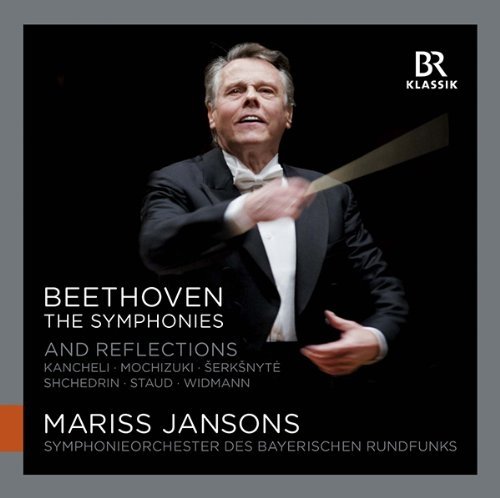Gabriela Montero stands out as different. She is an American-based improvising classical pianist of real quality. She has a courageous civil rights message to convey about the tragedy of unseen arrests and murders in her native Venezuela, but is nonetheless happy to take her curtain call draped in the colourful Venezuelan flag.

It’s the thought that counts. That’s what we say about presents. But when the gift is a song by Richard Strauss it is that and more. He made a habit of gifting songs, particularly to his wife Pauline. Several of the Six Orchestral Songs on offer here, as the two-month Strauss’s Voice series marking the 150th anniversary of his birth nears its end, are taken from groups originally celebrating occasions such as their wedding day (10 September 1896).

Valery Gergiev once described Yevgeny Svetlanov’s USSR - later Russian - State Symphony Orchestra to me as “an orchestra with a voice”. Then Svetlanov died and the voice cracked. Which are the other big Russian personalities now? Gergiev’s own Mariinsky? I don’t hear it. Yuri Temirkanov can still bend the St Petersburg Philharmonic Orchestra to his own whim of iron. The Russian National Orchestra was never in the running. But the Tchaikovsky Symphony Orchestra of Moscow Radio, to give its full title, still sounds as deep and rich as it did when I last heard it live nearly 30 years ago.

Vasily Petrenko used his baton like a piratical rapier to galvanise the London Philharmonic violins in their flourishes of derring-do at the start of Berlioz’s Overture Le Corsaire. And the brilliance was in the quicksilver contrasts, the lightness and wit of inflection which lent a piquancy to the panache of this great concert opener. The arrival of the main theme - tantalisingly delayed - was almost balletic in its vivacity and even the final trumpet-led assault suggested a Byronic hero as French as he was feral.



"The Sage Gateshead is in the top five best concert halls in the world." So thinks Lorin Maazel, and he should know. Attending concerts here is a real pleasure. The audiences are unfailingly friendly. The architecture is inspiring, and the views over the adjacent River Tyne spectacular. The main hall's acoustics are better than anything you'll find in London. Credit is due to a far-sighted Gateshead Council who paid for the building's construction.

This was the first of three Royal Festival Hall concerts during the first half of 2014 from the Royal Philharmonic Orchestra and its principal conductor Charles Dutoit, all three programmes consisting entirely of French music. The other two will be in May. In between the Swiss-born conductor, a sprightly 77-year-old, will have picked up a Lifetime Achievement gong at the International Classical Music Awards in Warsaw.

The Barbican’s ongoing season of baroque operas and oratorios has been a mixed bag. Most recently The Sixteen’s Jephtha was a rather lacklustre affair, leaving me nervous of committing to the many hours of Handel’s beautiful (but protracted) Theodora. But I needn’t have worried. Harry Bicket and The English Concert gave this late work all the pep and personality that was so lacking last week, driving it through its rather uneven acts to a conclusion of sudden pathos and beauty.

This is more an excuse for celebration than a review. Six years after the Scottish Chamber Orchestra was founded in 1974 – the birth year we were marking last night – I rolled up in a foggy Edinburgh one February day and chose it as my alma mater on the strength especially of one concert which showed what musical life in the city might be like: trumpeter John Wilbraham playing Bach and Handel with the SCO under Roderick Brydon. I fell in love with the venue, the Queen’s Hall, as much as the orchestra. In 1982 I proudly took on the role of the SCO’s student publicity officer.

“How tired we are of travelling,” the soprano sings, underscored by a solo horn. The end is near: “Is this perhaps death?” No fuss, no drama, but weariness and a calm acceptance. Since Strauss and his wife Pauline were in their eighties and living quietly in Switzerland when he wrote Four Last Songs, it is clear that they had come to terms with their inevitable demise. In the end musically, Strauss pays touching tribute to his wife, the soprano, and to his father, Franz, the horn player. Throughout, we have the soaring vocal line supported by the brass.
